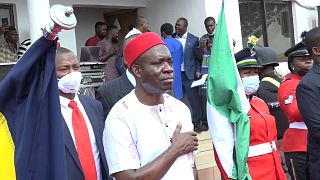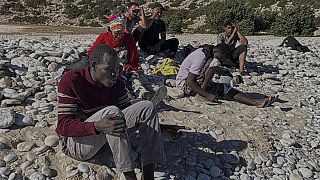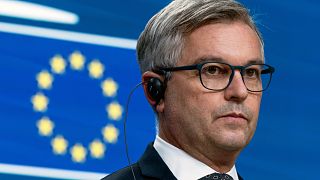Libya
The growing government crisis, after the House of Representatives in Tobruk, eastern Libya, appointed former Interior Minister Fathi Başhağah as prime minister last month, is also worrying citizens on the streets.
The House of Representatives in Tobruk, which elected Başhağah as prime minister in a session in which most MPs from the west of the country were not present, gave Başhağah's government a vote of confidence on March 1.
Abdelhamid Dbeibah, the prime minister of the national unity government, maintains that he is in office and has accused the House of Representatives of deviating from the roadmap laid out in the Geneva agreement. Dbeibah reiterates that he will only entrust the instruments of power to an elected government, but defiant Başhağah says he will take up his duties in the capital Tripoli at the earliest opportunity.
Back to crisis
The tension, that has been increasing day by day, reached its peak on March 10, and a new conflict broke out in Tripoli. Some military formations supporting Başhağah came to the city of Homs, east of Tripoli.
On the other hand, there was also military activity in the city of Terhune, the hometown of Khalifa Haftar, the head of the armed forces in the east of the country whose supporters are the majority.
After these alarming developments, international organizations took action. The United Nations Support Mission in Libya (UNSMIL) called for calm, stating that "security developments in and around the capital Tripoli are being closely monitored."
The U.S. Ambassador and Special Representative to Libya Richard B. Norland held a telephone conversation with Prime Minister of the national unity government Abdelhamid Dbeibah and Fathi Başhagah. After the intervention of wise men and long negotiations, the tension was over.
The statement made by Başhağah the same evening that "the military force that is heading to Tripoli is not acting out of conflict, but at the invitation of a patriotic people and for the purpose of security, and will begin its work in Tripoli in the near future as required by law" also attracted attention.
The Libyan streets worried about these developments
Libyans, who lived in this scenario of two governments in the east and west of Libya in 2014-2020, are watching the developments with concern because of the danger that such political fragmentation may lead to an armed conflict.
Libyan Muhammed Zevvac said that the atmosphere in the country is extremely tense, that many governments have been established in Libya so far, but the problems have not been solved.
Zevvac said, "People can't even get paid. There are two separate legislative institutions in the country, their members are well paid. But they talk about issues that do not concern the citizens. Ramadan is approaching, everything is expensive. Worried about their livelihood, people want a dignified life, nothing more." He added that some gas stations were closed and they had to wait for 4-5 hours to get gasoline due to long lines of vehicles.
"How can such a thing happen in an oil country? The country is already divided in two, another government has been formed. What is the point, will there be two ministers in each ministry? The solution lies in holding elections. Some names have been sitting in the same office for 10 years now. There should be new faces and fresh blood,” he concluded.
A new crisis of legitimacy
Mohammed Glafe said that after the establishment of the Bashagha government, a new crisis began in the country and that it was a "crisis of legitimacy".
"We have already lived in a Libya with two governments under the leadership of Fayiz es-Sarraj in the west and Abdullah Seni in the east. This has had a very negative economic impact on the country." Glafe went on to say that at that time, the eastern currency was invalid in the west and the western currency in the east, and they were drawn into the civil war because the state could not establish authority throughout the country.
Glafe added that, "I think the solution to the situation we are in is constitutional infrastructure and elections. Since the parliament and the president will be elected at the end of the elections, the debate about the legitimacy of institutions will naturally end. Thus, the ground for a national reconciliation will be formed.”
Another Libyan, Ashraf Ali, said that they did not know where the country was heading in the face of the developments. Ali said, "May Allah make things right, we want things to get better. We are entering the electoral process, but we have entered a period of instability because of this new government problem. I hope that elections will be held and we will elect a new president and government."
Stephanie Williams, the UN special adviser on Libya, claims that the only way to sustain the UN road map will be to hold an election by summer. Yet Libya’s conflict actors are stalling for time, in the knowledge that whoever is in charge after the process collapses could gain control of the country.












Go to video
Libya: UN announces "truce committee" as ceasefire holds after violence clashes in Tripoli
Go to video
France: The Sarkozy trial and behind the scenes of the "deal" with Gaddafi
01:04
Sarkozy faces 10 Years in prison in Libyan campaign trial
01:30
Legal proceedings commence for Sarkozy amid corruption allegations
01:12
Libya's warring factions agree to form unity government to end deadlock
01:00
UN launches new bid to revive Libya's elections